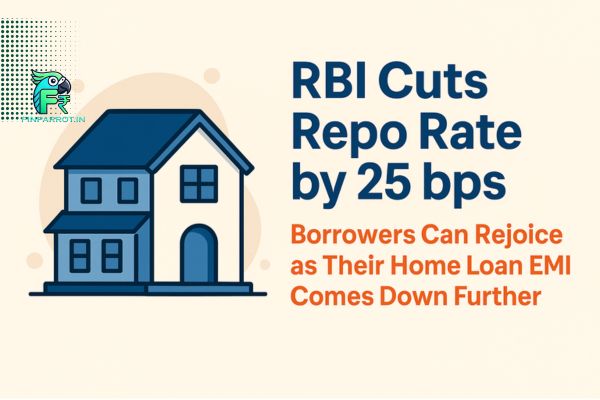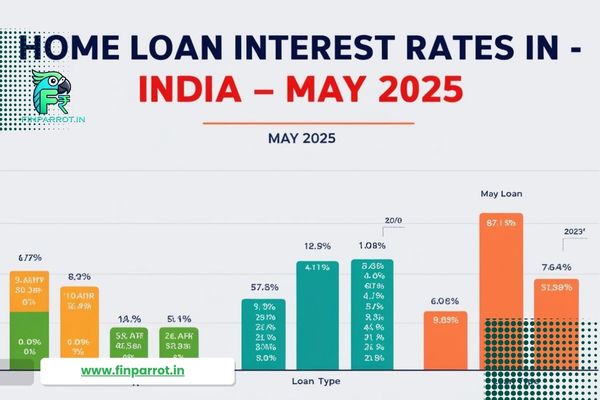Introduction
Personal loans are one of the most flexible financial tools, made to meet various needs like emergencies or planned expenses. However, many people don’t realize they can also help save on taxes. While personal loans don’t directly qualify for tax benefits, using them in specific ways can give indirect tax advantages.
Let’s dive into and learn about Tax Benefits on Personal Loans under the rules of the Income Tax Act 1961.
When can you get Tax Benefits on Personal Loans?
Tax Benefits on Personal Loans depend on how you use the borrowed amount. Let’s look at four simple ways they might help you save taxes.
1. For Home Purchase or Renovation (Section 24(b))
If you utilize your personal loan to purchase a residential property or renovate/repair an existing house, you could be eligible for a deduction on the loan’s interest under Section 24(b) of the Income Tax Act.
How It Works:
For a self-occupied property, you can claim up to ₹2,00,000 annually as interest deduction.
If the property is rented out, the interest deduction is subject to a broader cap of ₹2,00,000 under “Loss from House Property.”
Documentation is key! Ensure proof that the loan proceeds were used for home-related expenses, such as construction bills or renovation invoices.
Example:
Imagine you borrow ₹10 lakhs through a personal loan to renovate your home. Suppose the annual interest on this loan is ₹1,60,000. In that case, you can claim it all as a deduction (in the case of self-occupied property) against your taxable income, reducing your overall tax liability.
Read also – RBI New Loan Rules 2025
2. For Business Purposes (Section 37)
One of the key tax benefits on personal loans is the point at which they are utilized for business purposes. If you’re an entrepreneur or run a small business, using your loan for business expenses can unlock valuable tax savings. Whether you use it to purchase equipment, cover operational costs, or manage cash flow, the interest paid on the loan can be claimed as a legitimate business expense under Section 37.
Benefits:
Reduces your taxable income and, in turn, your total tax liability.
Provides much-needed financial relief for business owners.
Pro Tip:
Keep detailed accounting records, including repayment schedules and evidence of how the loan funds were used within the business. This documentation will be crucial during tax filing or audits.
3. For Asset Acquisition (Capital Gains Tax Impact)
If a personal loan is used to purchase taxable assets like real estate, gold, or shares, the interest paid on the loan can be added to the cost of acquisition of the asset. This addition effectively reduces your taxable capital gains when the asset is sold.
How It Works:
When you purchase a house for ₹50 lakhs using a personal loan and pay ₹2 lakhs as interest, the total cost of acquisition becomes ₹52 lakhs. When selling the house later, a higher acquisition cost lowers your overall taxable gains.
This tax benefit applies only at the time of the asset’s sale, not during the loan tenure.
Important Note:
Maintained relevant documents showing that the loan amount was directly linked to asset acquisition.
4. For Education (Section 80E – Special Conditions)
Although Section 80E traditionally applies to education loans from recognized financial organizations, personal loans used for educational purposes may still qualify for tax deduction benefits, provided these two conditions are met:
The loan is used exclusively for higher education (in India or abroad).
You have receipts proving that the borrowed money was used for tuition, examination fees, or other academic expenses.
Example:
If you’re repaying a personal loan taken to cover your master’s program tuition, you may be eligible to claim the interest portion of the repayment as a deduction under Section 80E.
Limitations: When Personal Loans Don’t Help with Tax Savings
Unfortunately, not all use cases for personal loans qualify for tax benefits. Below are a few scenarios where the funds do not offer any tax deductions:
- Wedding expenses
- Travel or vacation costs
- Medical emergencies (unless tied to business or education purposes)
- Repayment of existing loans
- While a personal loan provides financial flexibility for such personal expenditures, it doesn’t offer any tax advantages.
Read also – Instant Loan Apps in India
Tips to Maximize Tax Savings on Personal Loans
Whether you’re planning for big or small expenses, carefully managing your loan can help you unlock Tax Benefits on Personal Loans. Follow these actionable tips to make the most of your loan:
1. Clearly Define the Loan Purpose
Before applying for a personal loan, decide precisely how the funds will be used. This will help you plan for tax-saving opportunities.
2. Maintain Proper Documentation
Retain all records showing how the loan amount was spent. Relevant documents may include invoices, bank statements, or receipts.
3. Pick the Right Loan Type
If tax savings are a priority, consider alternative specific-purpose loans (e.g., home loans or education loans), which often come with additional benefits like lower interest rates and guaranteed deductions.
4. Consult a Tax Expert
For large loans or complex expenses, getting advice from a Chartered Accountant (CA) ensures you properly claim deductions and adhere to all tax filings.
5. Leverage Flexible Timelines
Different tax provisions apply at other times (e.g., house interest deductions can be claimed yearly, while asset-related cost adjustments are applicable at the time of sale). Align your timeline accordingly.
Tax Benefits FAQ!
2. How can I track the tax benefits I receive from using a personal loan?
To track your tax benefits, just keep all your loan-related receipts and records of what you used the loan for. It's also a good idea to consult a tax advisor during tax season to make sure you're claiming the right deductions.
Can I claim tax benefits if I use a personal loan to buy stocks or shares and incur a loss?
No, you can't claim tax benefits if you lose money from buying stocks or shares with a personal loan. However, you might be able to use the loss to offset other capital gains when filing your taxes.
Conclusion
Personal loans aren’t only for emergencies—they can help you save on taxes if you use them wisely. Whether buying a home, starting a business, or returning to school, understanding how to use the loan and the tax rules can help you save money.
By making smart choices and keeping track of your spending, you can turn personal loans into something that helps you borrow money and saves you in the long run.
Most Related Topics
BANK LOANS VS NBFC LOAN | LOAN SCAMS AND FRAUD | BEST 5 LOAN APPS















